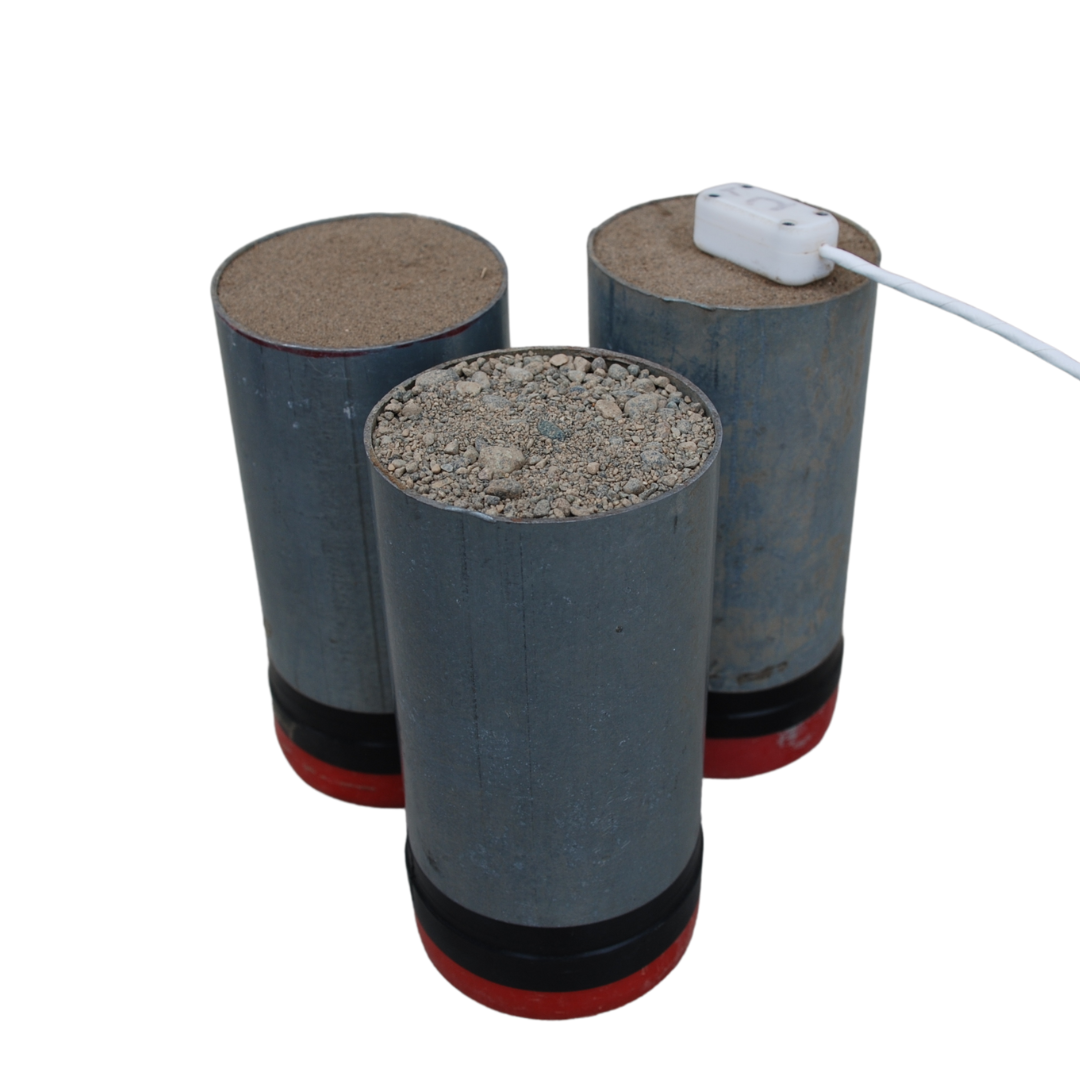Thermal Conductivity Testing
Thermal Conductivity Testing
Basalt Ridge offers thermal conductivity testing of the following materials: soil, sand, granular materials, concrete, FTB, grout, brick, plastic, gel, paste, adhesives, construction materials, solid insulation, food products, and fluids.
Thermal Conductivity of Porous Materials
Basalt Ridge Testing Laboratory is well-equipped to characterize the thermal conductivity of many porous, solid, and liquid materials.
Our standard thermal conductivity testing conforms to either ASTM D5334 or IEEE 442 standards for characterization of thermal conductivity.
Our test methods can characterize a wide thermal conductivity range from highly insulating materials down to 0.02 W/m K to near the upper limit of mineral thermal conductivity at 6.0 W/m K.
-
Soil, sand, granular materials, concrete, FTB, grout, brick, plastic, gel, paste, adhesives, construction materials, solid insulation, food products, and fluids.
-
0.02 to 6.0 W/m K
-
0°C to 150°C
-
ASTM D5334 & IEEE 442
Thermal Conductivity Testing FAQs
-
Thermal conductivity describes the ability of a material to transfer heat.
-
Thermal conductivity of soil and concrete materials using ASTM D5334 or IEEE 442 standards require a minimum sample size of 11cm in length and 5cm in diameter.
For disturbed soil samples, a gallon bag of material is plenty.
Fluid samples only require 200mL.
-
Simple thermal conductivity is quick, so we generally have results back to you in 2-3 days.
Thermal conductivity testing with the full thermal dryout curve (our most common thermal conductivity test) generally takes 5 working days for soil and 7 days for concrete.
Proper thermal dryout curve generation does require time to complete as the sample must be wet up and dried down to characterize the thermal resistivity across the full water content range.
-
Yes, we provide thermal testing of bulk samples of disturbed soil. However, the desired bulk density (unit weight) for testing must be provided.
-
Basalt Ridge’s thermal conductivity, thermal resistivity, and thermal dryout curve testing conforms to either ASTM D5334 and IEEE 442 standards.
Thermal Conductivity of Fluids
Basalt Ridge Testing Laboratory is equipped to characterize the thermal conductivity of many fluids, including water-based nano-fluids.
Our measurement technique is limited to fluids as viscous as or more viscous than water at 40C.
Sample temperature control is available upon request.
Custom Thermal Conductivity Testing
Basalt Ridge Testing Laboratory has the ability to test thermal properties of many different materials, using a variety of techniques that do not conform to ASTM D5334 or IEEE 442 standards.
If you have a thermal properties characterization problem and you need help solving it, contact us and we’ll see if we can help.






